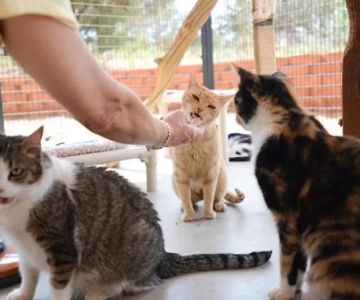- understanding-why-cats-meow
- common-reasons-for-excessive-cat-meowing
- how-to-respond-to-behavioral-meowing
- health-conditions-linked-to-vocalization
- real-life-cat-owner-stories-and-solutions
- when-to-seek-veterinary-support
1. Understanding Why Cats Meow
Unlike dogs, cats don't usually vocalize with other cats unless they're kittens communicating with their mother. So when your cat is meowing, it’s almost always meant for you. While meowing is completely normal feline behavior, excessive vocalization might signal something more—from behavioral needs to underlying medical issues.
Understanding why cats meow excessively is key to nurturing a healthy, emotionally balanced relationship with your pet. Some cats are naturally more vocal, such as Siamese breeds, while others may become more talkative due to age, stress, or environmental changes.
2. Common Reasons for Excessive Cat Meowing
2.1. Attention Seeking or Boredom
Cats are intelligent and social. If your cat starts pacing and meowing loudly while you’re on Zoom calls or relaxing, chances are they want attention. Try spending more playtime with them, especially using interactive toys that mimic hunting behavior.
2.2. Hunger or Meal Routine Disruption
Many cats are sticklers for schedule. If you’re five minutes late feeding them, expect a dramatic performance. Some cats will even meow excessively to “train” you. Automatic feeders or food puzzles may help regulate feeding and reduce attention-seeking behavior.
2.3. Environmental or Emotional Triggers
Changes like moving, a new baby, or introducing another pet may cause vocal anxiety. Even rearranging furniture can cause distress. In such cases, creating a safe, quiet space with their favorite bedding or toys can reduce stress-related meowing.
3. How to Respond to Behavioral Meowing
3.1. Avoid Reinforcing Unwanted Meowing
If your cat learns that meowing gets them what they want, they’ll keep doing it. It’s critical not to reward the behavior unless it’s warranted. Instead, reward quiet behavior with affection or treats to gently shape their habits.
3.2. Enrichment and Mental Stimulation
Provide stimulating activities—like puzzle feeders, bird-watching perches, or even safe indoor cat trees. Cats that are mentally engaged tend to meow less, especially if boredom is the primary cause.
3.3. Consider Age-Related Changes
Senior cats may develop cognitive dysfunction (similar to dementia), leading to confusion and increased vocalization, especially at night. Nightlights, consistent routines, and pheromone diffusers can help calm older cats.
4. Health Conditions Linked to Vocalization
4.1. Hyperthyroidism and Kidney Disease
Medical issues like hyperthyroidism, common in middle-aged cats, can cause excessive hunger, restlessness, and meowing. Kidney disease may result in discomfort or confusion. If your cat suddenly becomes more vocal without changes in behavior or environment, a vet visit is essential.
4.2. Hearing or Vision Loss
As cats age, sensory decline may lead to disorientation or distress, which they vocalize. This type of meowing often happens at night and may sound more mournful or prolonged than usual.
4.3. Pain or Physical Discomfort
Meowing can also be a cat’s only way of saying something’s wrong. From dental pain to arthritis, chronic pain should not be ruled out. Professional examination ensures underlying causes are identified early.
5. Real-Life Cat Owner Stories and Solutions
5.1. Max and the Midnight Meows
Max, a 12-year-old tabby from Minneapolis, started meowing every night at 2 AM. His owner, Lisa, thought it was just a phase. Turns out, Max was developing cognitive issues related to aging. With help from her local vet and a nighttime routine using soft lighting and feline pheromones, Max’s nightly cries significantly decreased.
5.2. Luna’s Attention Marathon
Luna, a young rescue cat, meowed persistently during work hours. After behavioral consultation, her owner introduced timed feeding, interactive play sessions, and ignored the meows during meetings. Luna quickly adapted and started napping through Zoom calls like a pro.
6. When to Seek Veterinary Support
If your cat's meowing changes in tone, frequency, or context, don't dismiss it. Excessive vocalization can be the first sign of health decline or emotional distress. Especially if paired with weight loss, hiding behavior, or changes in appetite, consult a vet immediately.
For trusted guidance and feline-friendly solutions, consider visiting Hidden Brook Veterinary—a resource dedicated to comprehensive behavioral assessments, holistic pet products, and compassionate care tailored to your cat’s needs.












